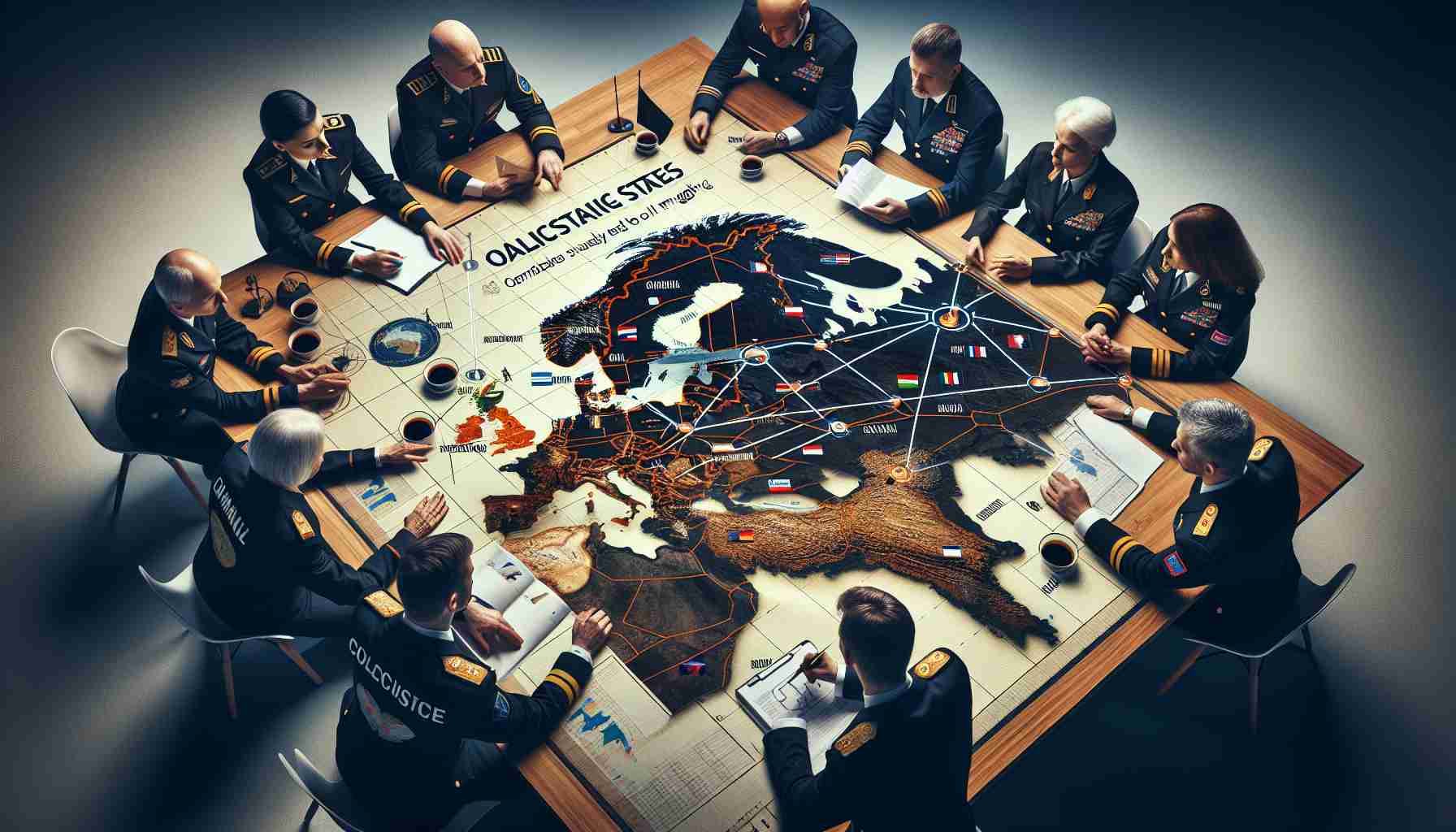Nordic-Baltic Alliance Takes a Stand Against Maritime Smuggling
In a significant move, the 12 Nordic-Baltic nations have unveiled a united front to tackle the mysterious operations of Russia’s so-called ‘shadow fleet’—a group of oil tankers allegedly breaching the G7-imposed price cap on Russian oil. This collaborative initiative focuses on verifying insurance claims from these vessels as they navigate crucial maritime routes.
The countries involved, including Denmark, Finland, Latvia, and the United Kingdom, have instructed their maritime agencies to rigorously check for insurance documentation from any suspected shadow vessels traversing key waterways, such as the English Channel and the Gulf of Finland.
With environmental and maritime safety at stake, these nations emphasize the shadow fleet’s threat to global shipping laws and sanctions enforcement. The alliance’s January statement highlighted their commitment to holding accountable those involved in facilitating these operations, especially considering the ongoing conflict in Ukraine.
Estonian leadership has indicated that if these vessels refuse to comply with inspections, they may face strict penalties, including boarding and banning from ports. Furthermore, the UK has already placed sanctions on multiple vessels within this shadow fleet, as the EU reinforces its sanctions efforts against Russia.
This important coalition aims not only to confront illicit maritime activity but also to protect international trade and uphold maritime law amidst growing geopolitical tensions.
Nordic-Baltic Alliance Unites Against Maritime Smuggling: Key Insights and Trends
The recent collaboration among the 12 Nordic-Baltic nations marks a pivotal effort to combat maritime smuggling, particularly in relation to the operations of what is termed Russia’s “shadow fleet.” This fleet has been implicated in evading the price cap imposed by the G7 on Russian oil exports. Here we explore the implications, emerging trends, and broader context of this initiative.
Key Features of the Alliance
1. Stringent Inspections: The alliance’s maritime agencies are primed to enforce strict verification processes for insurance documentation of vessels suspected to be part of the shadow fleet. This initiative seeks to enhance maritime security and uphold international shipping norms.
2. Collaboration Among Nations: Involving countries such as Denmark, Finland, Latvia, and the United Kingdom, this coalition demonstrates a unified stance against regulatory evasion and illicit maritime activities.
3. Geographical Focus: The emphasis on critical waterways like the English Channel and Gulf of Finland highlights strategic maritime routes that are essential to international trade and shipping.
Pros and Cons of the Initiative
Pros
– Enhanced Maritime Security: The rigorous checks might deter smuggling and ensure compliance with international regulations, protecting the global maritime environment.
– Strengthened International Relations: The collaborative approach fosters unity among the Nordic-Baltic nations, reinforcing ties in a region marked by geopolitical tensions.
Cons
– Economic Impact on Trade: Increased inspections could lead to delays in shipping times, affecting global trade dynamics and the supply chain.
– Potential for Escalation: The aggressive stance against non-compliant vessels might provoke retaliatory actions, further escalating tensions in the region.
Use Cases and Practical Implementation
– Port Authorities: Local port authorities in participating nations will play a critical role in implementing inspections and enforcing sanctions against non-compliant vessels.
– Shipping Companies: Firms operating in these regions will need to ensure their vessels are compliant with the new regulations to avoid penalties, including possible bans from ports.
Limitations and Challenges
– Operational Constraints: The success of inspections will depend on the availability of resources and personnel to carry out checks effectively across vast maritime expanses.
– Legal Frameworks: There may be legal challenges in enforcing inspections on vessels from nations outside of the alliance, complicating international cooperation.
Market Analysis and Predictions
Experts predict that the Nordic-Baltic alliance’s tough stance could lead to a significant reduction in illicit oil smuggling operations, which have been flourishing amidst the ongoing Ukraine conflict. Furthermore, as nations seek to navigate these turbulent waters, enhanced partnerships and intelligence sharing are likely to become standard practice.
Sustainability and Environmental Considerations
This initiative aligns with broader sustainability goals by aiming to protect marine environments from polluting activities linked to unregulated oil transport. By addressing these smuggling networks, the coalition not only aims to uphold laws but also to mitigate environmental risks stemming from maritime operations.
Conclusion
The Nordic-Baltic alliance represents a critical response to the challenges posed by the shadow fleet and maritime smuggling. As nations stand together to protect maritime integrity and uphold international law, the situation remains dynamic and indicative of shifting geopolitical landscapes.
For further details on maritime regulations and updates, visit Maritime Information.
